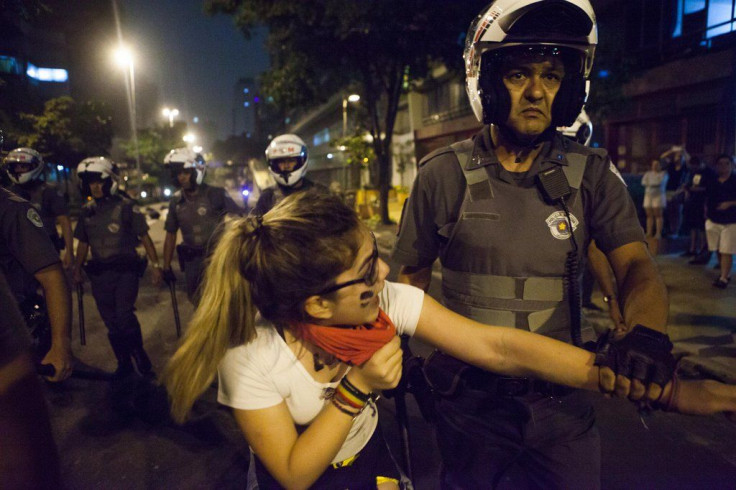
Update: Judge Supends Restructuring Program
Judge Iberê de Castro Dias has halted the controversial restructuring program that would have closed down more than 90 schools in the state of Sao Paulo Folhia's Monica Bergamo reports. The report coincided with another student protest Friday morning, in which 90 student protesters blocked a main street with school desks, according to @bentavener. Among the reasons for the freeze? Federal constitutional requirements to spend on children first. Alkmin's original reason for the restructuring, which cuts education spending, was meant for austerity. But a judge now says that he needs to open a period of public comment and focus on other areas to cut first
On one hand, Brazil has faced an ever-deepening recession. On the other hand, Alkmin’s spending priorities have been in other areas. For more on the background of this case, check out Brian Mier’s Dec. 1 article on Brazil Wire, We Rule The School.
“Last year, 6 months after governor Alckmin announced construction of 49 new prisons, the government announced it didn’t have enough money to pay for toilet paper in its public schools, despite being able to lavish hundreds of millions of dollars on a illegally contracted white-elephant monorail system which currently only has two stations.”
São Paulo schools protest reaches Av. Paulista #naofecheminhaescola pic.twitter.com/zWOD2S0QEg
— Ben Tavener (@BenTavener) December 4, 2015Original article follows
Police used stun grenades and tear gas to clear some 30 teens from a city street in São Paulo, Brazil, on Tuesday night following a protest against a state government school restructuring decree, local media reported. Student protesters are demanding a greater voice in the educational consolidation plan which would close 94 grade schools. High school and middle school students have led or been involved in occupying around 200 schools around Sao Paulo state, mostly in the city of Sao Paulo.
Student activists, parents and education advocates say that the consolidations will lead to larger class sizes and longer commute times. While the schools represent just a fraction of the 5,000 schools in the state, the destination schools will also be affected, giving around 300,000 students a stake in the restructuring. Occupiers are demanding a greater level of input in the restructuring, and more transparency.
Local officials have offered mild concessions to get them to vacate schools, but have been rebuffed. State governor Geraldo Alckmin said this week that all of the schools would be used for other educational purposes. Some, for example, are being converted into language learning centers. He blames teachers unions and adult activists for inciting the occupations.
Veteran adult activists say that they have supported the students with supplies. Teachers have been among those injured in multiple attempts by local law enforcement to evict protesters. Students, while mostly peaceful, have reportedly trashed some of the school properties they’ve taken over.
Reports indicate that the main focus for students is their future, not vandalism. Videos of protesting students show them chanting “the school is ours” as well as this chant documented by reporters Renata Mendonça and Ricardo Senra of the BBC, which rhymes in Portuguese.
“I am a student / not a thief / I didn't come to school / to leave in a paddy wagon.”
That was a week in to the movement, which started on Nov. 9. On Tuesday, many students were led away in a paddy wagon. Images of the arrests were posted by a indipendent activist journalists. One young girl argues with police before being arrested and taken away in the back of a squad car.
#OcupaEscola Camila foi liberada, mas 3 estudantes foram presos hoje. Truculência continua. Siga @j_livres #Equipe pic.twitter.com/SdLdgGsa46
— Margarida Salomão (@JFMargarida) December 2, 2015AGORA: na 9 de Julho, PM pede que estudantes liberem as linhas de ônibus ou terão de sair à força. Estudantes negam pic.twitter.com/41dVIN7Udq
— jornalistaslivres (@j_livres) December 1, 2015#OcupaEscola pic.twitter.com/eEtAUHpAly
— CMI_São Paulo (@cmi_saopaulo) December 1, 2015© 2025 Latin Times. All rights reserved. Do not reproduce without permission.



